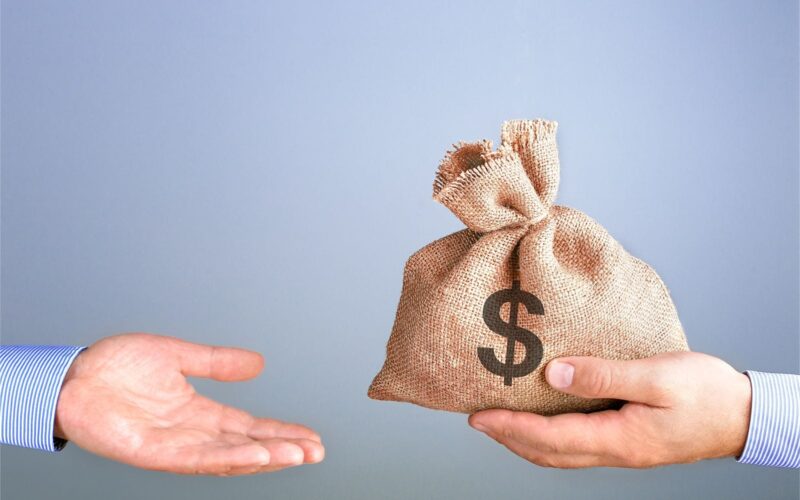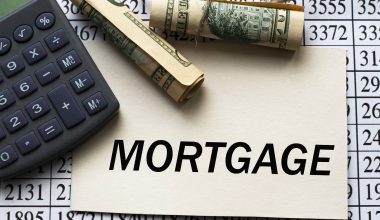Most times we find it difficult to buy a house. Problems can arise in the process which can delay your plans. And if you are ready to buy or make an offer on a particular house all you need is to make an earnest money deposit to show your seriousness on the deal. Earnest money is what you pay into an escrow account to show the seller you are serious about buying the property. If you change your mind and wonder how you can pull out of the deal you started. this article will give you more understanding of how to get your earnest money refund in real estate.
What Is the Earnest Money?
Earnest money is a deposit a customer makes into an escrow account to show they are serious about buying the property. Without earnest money, any buyer could say they are interested in buying a home but may not be serious about it.
Earnest money is also known as good faith which can be put down to exhibit the seriousness of the buyer in purchasing real estate. Furthermore, earnest money protects the seller if the buyer backs out. It’s around 2% to 6% of the sale price which is held in an escrow account until the deal is complete. The exact amount depends on what’s normal in your area.
Some homeowners may believe a larger deposit can convey a stronger promise to follow through on the sale. If all goes smoothly, the good faith money is applied to the buyer’s down payment or closing costs.
If the deal falls through due to a failed home review or any other contingencies listed in the contract, the buyer gets their good faith money back. The practice of depositing good faith money can reduce the possibility of a buyer rating offers for multiple homes. However, it also reduces walking away after the seller takes the property off the market.
How Earnest Money Works
Earnest money, as approved by the seller and the buyer in the purchase agreement. Once the money is paid, within three days of the agreement, one of these outlines can occur, which changes where that good faith money belongs.
#1. If the Sale Goes Through
When the house passes all its examinations and assessments, and the sale closes, the money paid as earnest money can go back to the new homeowner.
#2. Meeting Contingency Requirements
If difficulties arise with the house or did not meet the contingency requirement during the determination period, or the Inspector finds any damages, the house relatively will be lower than the buying price. However, the buyer can choose to walk away and take back the good faith money as long as it was stipulated in the purchasing agreement.
#3. The Buyer Walks Away
If in any way the buyer decides to change his mind and go for a different house or walks away from a purchasing agreement for any reason beyond what is on the contract, the buyer will have to forfeit their earnest money. Therefore, the earnest money will go to the seller who can use it to cover any losses incurred by taking their house off the market.
Earnest Money Deposit
An earnest money deposit is the amount of money you put into an escrow account. While it’s in escrow, neither you nor the buyer can access the money. Instead, it will be held by a third party, normally the title company.
Your earnest money holds the index for you while you conclude your reviews. the seller can refund the earnest money deposit back to you under specific circumstances, which are included in your contract with the seller. In real estate, the earnest money is effectively a deposit to buy a home. Normally, it runs between 10% to 20% of the home’s sale price. However, earnest money doesn’t request a buyer to purchase a home. It needs the seller to take the property off of the market during the assessment process. The money is deposited to signify good faith in buying a house.
What to Do to Protect Your Earnest Money Deposit?
Future buyers can do different things to secure their earnest money deposits. Below are the things you should consider to protect your earnest money:
- Make sure the contract provides contingencies for funding and reviews. Without these, the deposit will be lost.
- Comply with the terms and conditions of the contract.
- Ensure that the deposit is handled properly.
- The deposit needs to be payable to a reputed third party, such as a well-known real estate brokerage.
Understanding Earnest Money Deposits With Examples
Chris, Morgan, and Troy are all selling their real estate. Jane is a buyer who is looking at all three real estate. She knows she wants one of them, but she can’t decide which one she likes best. If all three sellers require earnest money deposits. Three plans can play out with Jane’s investment:
#1. The Forfeited Deposit
Jane doesn’t want to decide on a single property yet, so she makes a good faith deposit on all three estates. Chris, Morgan, and Troy take their real estate off the market and notify their other potential buyers that Jane wants the estate.
Later, Jane decides she wants Troy’s house. Morgan and Chris now have to put their estate back on the market for other buyers. Luckily, Jane’s earnest deposits to Morgan’s and Chris’s are theirs to keep. This situation offers them some compensation for the time and money they lost due to Jane backing out of the sales.
#2. The Early Closing Payment
Jane doesn’t have money to limit on making pledges to all three sellers. After some consideration, she decides she likes Toys house best and makes a deposit. Everything sprints out well, as she purchases Troy’s real estate and moves in and the earnest money deposit goes toward paying off the place.
#3. The Failed Contingency
Jane makes her single deposit to Troy, but when she is through with the review, she finds out that the house is overspread with damages. Fortunately, Jane has a home check contingency in the purchase agreement, so she decides not to buy and gets her money refund from Troy.
Earnest Money Deposit Platform
Electronic money transfer platforms is a means of sending money to individual, companies, and organization. However, it is especially, useful and beneficial for the earnest money deposit platform.
With an electronic payment platform, a real estate broker can send a request to the buyer for funds, and the buyer can reply within seconds. Therefore, making it easy to transfer money without the need to go to the bank or meet with the agent to hand over a check. This helps to keep the mortgage process flowing smoothly without interruption. However, you don’t have to wait for a check to clear. These platforms are available for use 24/7. There is no need to wait for a bank to open. This makes things much easier for both the buyer and the real estate brokers and cuts down on the time you have to waste due to the wrong amount of money sent.
Furthermore, earnest money deposit platforms are just much more likely the best. It is the most beneficial tool for sending earnest money as well as many other transactions. From lower fees, less paperwork, and less time spent waiting in line at a bank or scheduling meetings, to improve security and decrease the possibility of real estate fraud. However, there is no reason that anyone in the real estate industry shouldn’t be using a secure platform.
Earnest Money Refund
Earnest money refund depends on the circumstances involved in the process of you buying a property or real estate. Therefore, if you have an agreement with the seller that you will back out from the deal before certain deadlines, then you have the chance of getting your earnest money refund. The same applies if you didn’t break any contract rules.
Most times buyers get their money back when the seller closes the deal without a good reason. You may also get your money back if the reason for the termination is on your contract purchase. Good faith money gives sellers monetary assurance that a buyer won’t back out of the contract without valid cause or reasons.
How to Protect Your Earnest Money Refund In Real Estate
It’s important to protect your earnest money refund. To protect a good faith money deposit, prospective buyers can follow several precautionary steps:
#1. Everything Should Be In Writing
Ensure that the contract clearly defines what amount to cancel and who ends up with the earnest money.
#2. Use an Escrow Account
Make sure the funds are in an escrow account and obtain a receipt. Therefore, you should avoid handing your earnest money directly to a real estate seller or broker.
#3. Understand the Contingencies
Ensure that circumstances that safeguard your interests are in the contract. Most importantly, don’t sign a home purchase agreement that doesn’t have the clause that protects you.
#4. Meet Your Responsibilities
Real estate purchase agreements most times set deadlines to guard their sellers. However, make sure you respond to all queries and supply the necessary documents on time. As well as meet review, appraisal, and closing deadlines to avoid breaching the contract.
Why Is Earnest Money Important?
Earnest money is important once you find a home you want to buy. That’s because it shows your seriousness as you enter a real estate contract with the seller. then after, the home will then be off the market as you go through the process of home inspection and closing on your mortgage. After all that process, there’s no reason to have the homestay listed if you’re planning to buy it. But how does the seller in question know you’re really serious about it? What could stop you from changing your mind midway through the process and backing out of your purchase contract? For the seller not to start afresh and list that home all over again is important you make your good faith money deposit.
What is the purpose of earnest money?
You put down a certain amount of money as earnest money or a good faith deposit to show that you’re serious about buying a house. Earnest money typically serves as a deposit for the property you want to acquire. When you sign the sales or purchase agreement, you deliver the money.
What is the purpose of earnest money?
You put down a certain amount of money as earnest money or a good faith deposit to show that you’re serious about buying a house. Earnest money typically serves as a deposit for the property you want to acquire. When you sign the sales or purchase agreement, you deliver the money.
Why is earnest money refundable?
The sale contract will be complete once the earnest money is transferred to the seller. Only when a payment is included in the purchase price is it regarded as earnest money. If the sale is unsuccessful, the money will be returned.
How much earnest money is normal?
In most real estate markets, the customary good faith deposit is between 1% and 3% of the property’s purchase price. It may even exceed 10% for homes in markets that are very competitive and have a large number of potential purchasers.
What is the difference between earnest money and a deposit?
The distinction between earnest money and a down payment is one that prospective house buyers frequently inquire about. These two real estate words are somewhat similar but not precisely the same. A down payment serves as a promise to the lender providing your mortgage loan, whereas an earnest money deposit serves as a commitment to the seller.
What is due diligence money?
A cost that buyers offer when they submit an offer to purchase a home is known as due diligence money. In essence, it is the buyer’s payment to the seller in good faith. The seller takes the house off the market during the due diligence phase so the buyer can finish the inspections.
How Much Earnest Money Should I Put Down?
Consider the following when asking how much to put down:
- A flat fee ranging from $600 to $3000 might be acceptable depending on the home.
- If you’re making an offer without any competitor, put down about 1% of the offering price on the home.
- If you’re making an offer and know other people are looking at the home, consider putting down roughly 1-5%.
- The state of the local and national housing market.
- How eager is the seller?
- How fast you can close the deal.
The earnest money amount will change according to your location, seller, and price of the home you’re viewing. However, The best way to determine local customs is to talk to an experienced real estate agent. Your good faith money deposit could range anywhere from 1-4 percent for an existing home to 11 percent for the new building. It depends on the specific property, the competitiveness of the market, and other market-specific factors. For example, on a $400,000 property, you may put down $3,000. For new construction, as much as 10 percent can be required, which would come out to $40,000 in this case.
When it comes to a competitive market you’ll need to put down more money. Most agents agreed that buyers should have put down money that will be taken seriously, but not so much that a buyer’s finances are at risk. It’s doubtful that you’ll lose your good faith money deposit, but it’s important to protect yourself.
Earnest Money FAQs
Can you pay earnest money with a credit card?
Yes, although cash and check are the standard methods of making an earnest money payment, other forms of money are typically acceptable, including credit cards.
Why is earnest money important?
Earnest money is important because it proves to the seller that you’re serious about your offer.
Is earnest money refundable?
Earnest money is refundable, it just depends on the circumstances. If you tell the seller that you are backing out of the home buying process before certain deadlines, then there should be no issue refunding the earnest money to you.
Related Articles
- Purchase Agreement: Real Estate Buy and Sell Contract
- PRIVITY OF CONTRACT: Overview, Examples, Comparisons (+ Free PDFs
- Christian Clothing Brands: (Top 10+ Best Christian Clothing Brands)
- Car Accident Lawyer: Fees and How they Work
- WHAT IS ESCROW ON MORTGAGE: Advantages, Disadvantages & How It Works
- Escrow Agent: A Simplified A-Z Guide (+ Updated Sample)
- COMPOUND INSURANCE: Definition & How to Get Your Car Out of Compound






